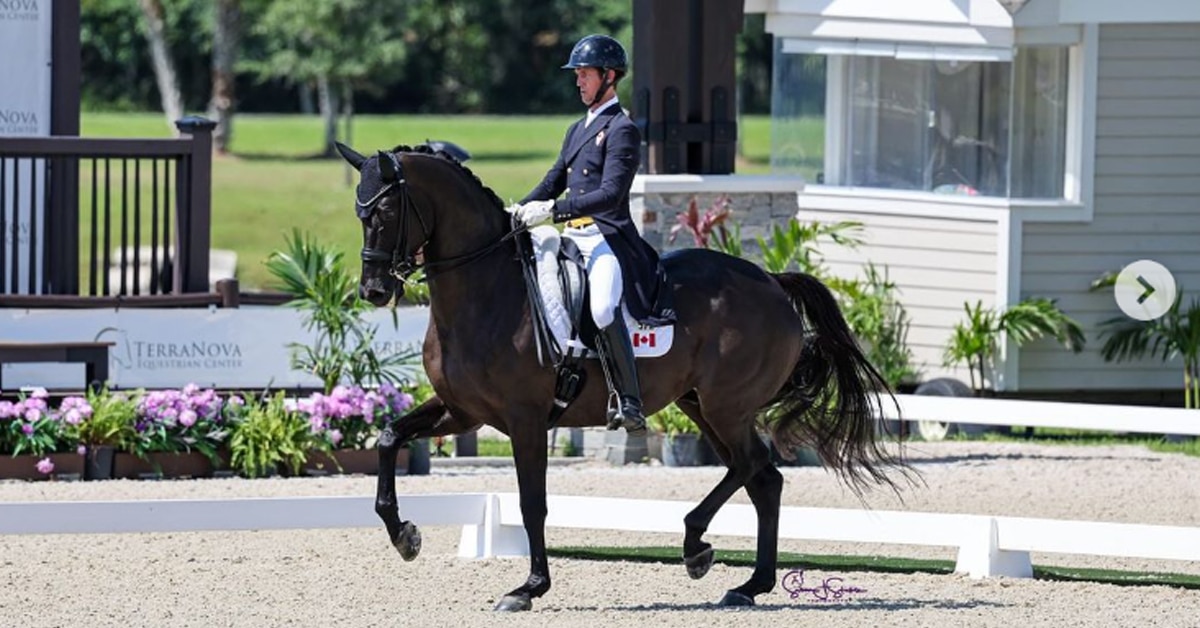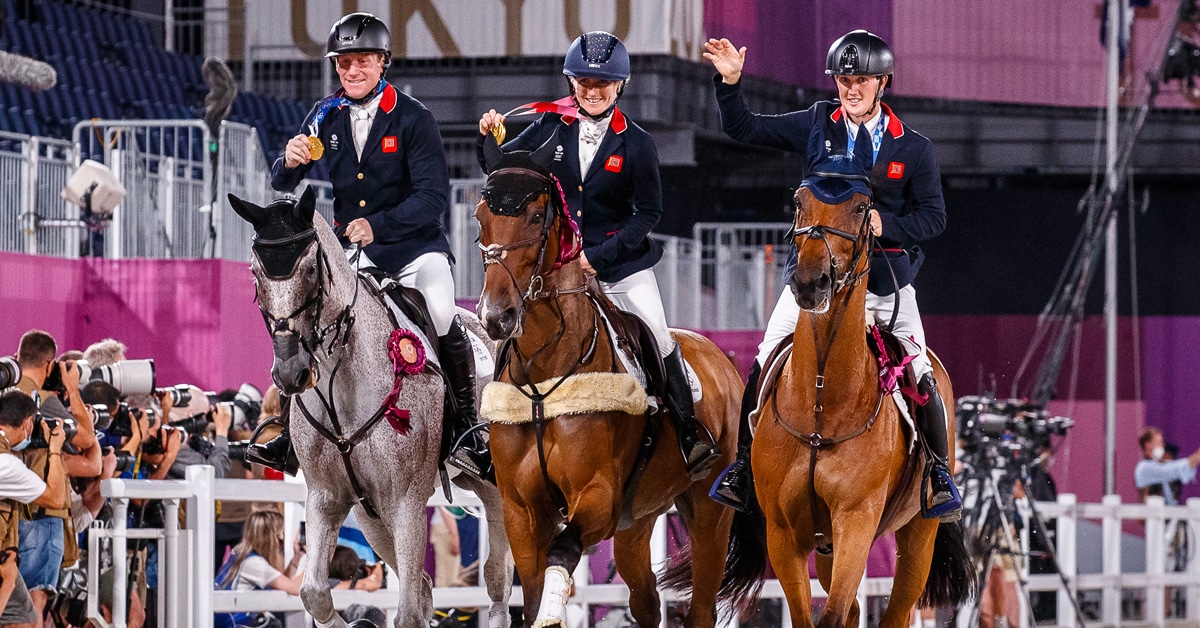The FEI has issued a decision pursuant to the Anti-Doping Rules for Human Athletes (ADRHA) in an anti-doping case concerning retired Canadian show jumping athlete Eric Lamaze. It was found that Lamaze committed the anti-doping rule violation of tampering through the submission of fabricated medical documents during an ongoing Court of Arbitration for Sport (CAS) proceeding. Lamaze chose not to respond to the charge, so in accordance with ADRHA rules, he waived a hearing, admitted the violation, and accepted the proposed consequences.
As a result, and given the absence of any mitigating circumstances, Lamaze is subject to a period of ineligibility of four years (until Sept. 11, 2027). He was also fined CHF 15,000 (about $22,523 CAD) and must reimburse the FEI for related legal costs.
An FEI spokesperson responded to questions from Horse Sport, including how such a ban would really affect Lamaze, seeing as he is retired from competition anyway and no longer acting as Canadian chef d’équipe.
“An athlete who retired may decide to come back to competition at any time (subject to a six-month waiting period before the athlete can actually start competing). The retired athlete can also engage in other functions and activities within the National Federation or riding clubs, such as coaching, being a chef d’équipe, etc.”
“On the other hand, an athlete who has been declared Ineligible may not participate in any competition (be it national or international) during the suspension period, or other activity, or funding as provided in the Article 10.14 ADRHA. The term “other activity” would include being a trainer, or a technical advisor, or chef d’équipe, to name a few – within the National Federation or one of its clubs. Consequently, Mr. Lamaze cannot coach any equestrian riders affiliated with any National Equestrian Federation or train horses registered with the FEI or National Equestrian Federations.”
“If the above is not complied with, Mr. Lamaze would be in violation of his Ineligibility period and the FEI could open a separate proceeding against the Athlete who was coached by Mr. Lamaze for violating the article 2.10 of the ADRHA – Prohibited Association.”
This is just the latest in a series of legal woes involving forged documents and horse deals gone bad that have befallen the Olympic champion, as reported by Horse Sport in early September.
Many in the sport are wondering why Lamaze received only a four-year suspension and not a lifetime ban. As a signatory of the WADA Anti-Doping rules, the FEI was required to follow WADA rules which dictate that an athlete in violation of this particular Anti-Doping rule is ineligible for a period of four years. The FEI has unsuccessfully lobbied WADA in the past on their relatively light penalties for the use of social drugs.
It is interesting to note that the FEI has never imposed a lifetime ban on anyone. “The highest sanction imposed so far in human anti-doping was also four years – [El Salvador show jumper] Paulo Sergio Mateo Santana Filho for the use of boldenone,” the FEI spokesperson confirmed.
Lamaze, the World Anti-Doping Agency (WADA), and the Canadian Centre for Ethics in Sport have the right to appeal the decision to the CAS within 21 days of receipt of the decision. More details will become available once the ongoing CAS proceedings are concluded.
More from News:





